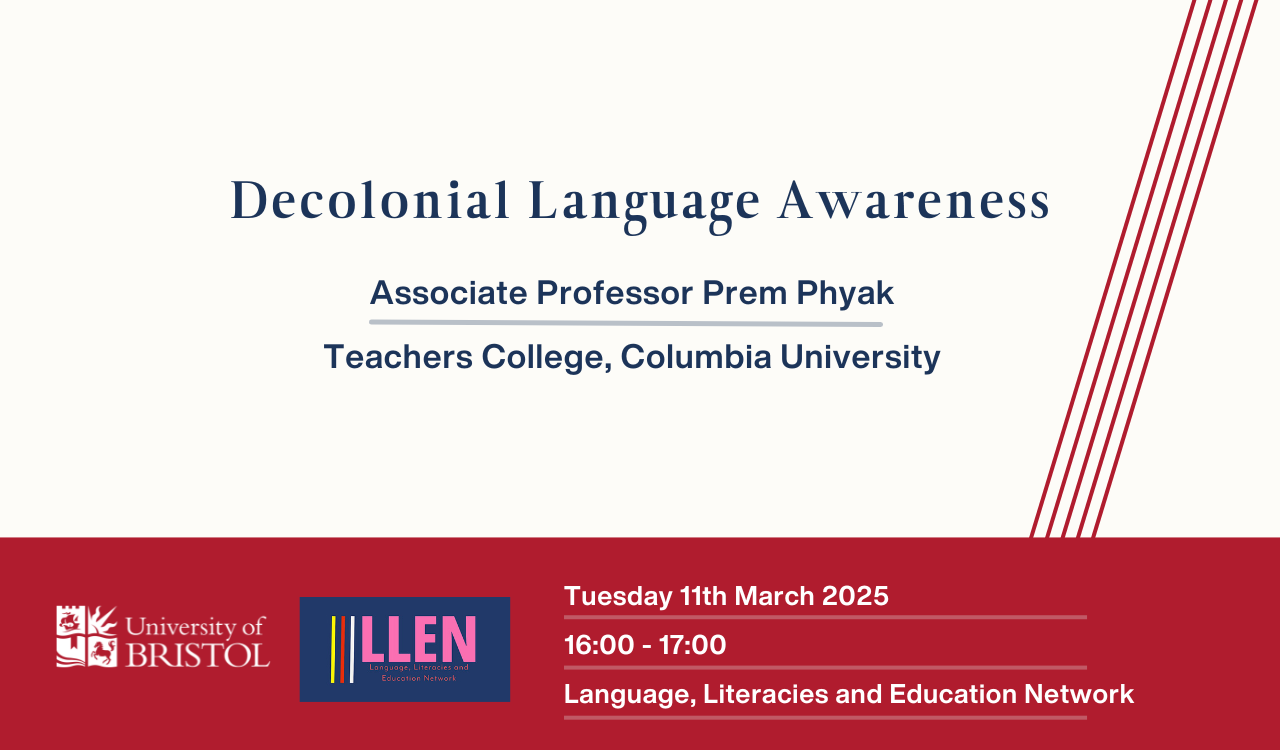
Event information
Decolonial Language Awareness: Land, Indigenous Languaging and Linguistic Survivance
Tuesday 11th March 2025, 16:00-17:00 (GMT)
This event is supported by the Language, Literacies and Education Network (LLEN).
Venue – Online.
Registration - Sign up for this event on the Eventbrite page.
About the event
Speakers: Associate Professor Prem Phyak (Teachers College, Columbia University)
In this talk, I discuss the notion of decolonial language awareness to analyze Indigenous languaging in linguistic survivance and epistemic resurgence against linguistic/epistemic universalism of modern education. Building on the theories of ‘decoloniality’ (Mignolo & Walsh, 2018; Quijano, 2008), ‘survivance’ (Vizenor, 2008) and ‘critical language awareness’ (Lee, 2013), I explore how Indigenous Yaakthung youth in Nepal build decolonial awareness problematizing a text/textbook as a bounded, written and homogenous object and redefining it as an oral, epistemic and ecological, embodying human-nature relationships. Drawing on the Yaakthung philosophies of Mundhum and Tangsing, I discuss how Indigenous youth learn the Yaakthung language and epistemologies in a land-based education involving tumyaangs and shambaas. This community-based participatory action research (C-PAR) engages Yaakthung youth in land-based activities which provide them with opportunities to listen to the oral histories from tumyaangs, observe cultural performances, analyse the role of language in human-nature interactions and question the erasure of Indigenous languages and epistemologies in modern education.
Indigenous languaging as observed in the land-based activities deconstructs deficit views about oracy and ritualistic performances and reclaim them as critical forms of linguistic survivance carrying the history, culture, and epistemologies of the Yaakthungs. I conclude the talk about arguing that decolonial language education should pay attention to land-based (e.g., plants, animals and water) epistemologies that offer alternative perspectives to understand language practices and the epistemologies.
